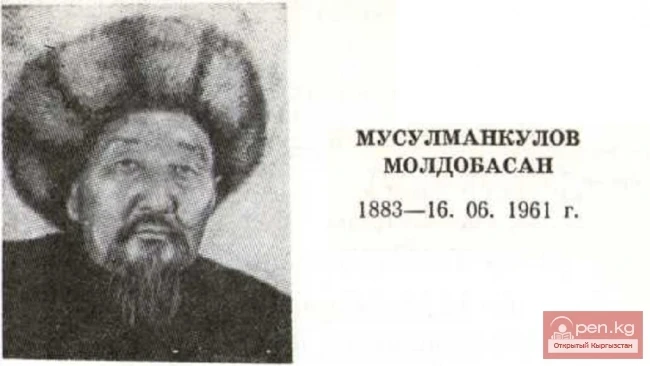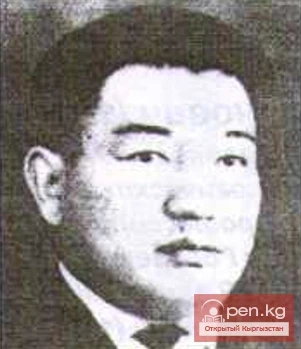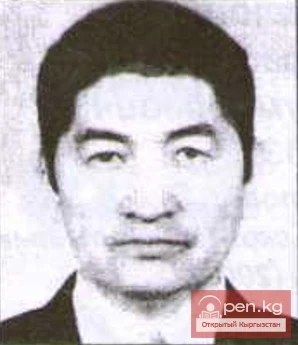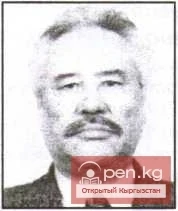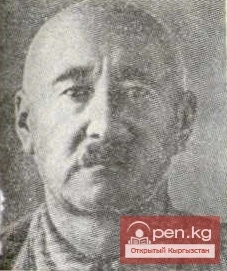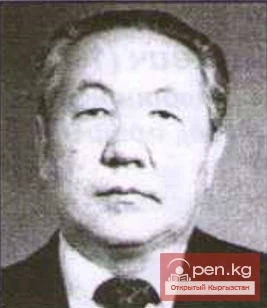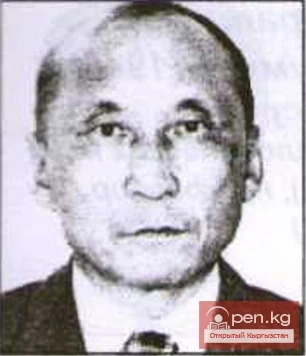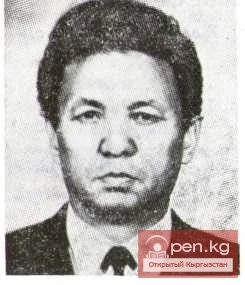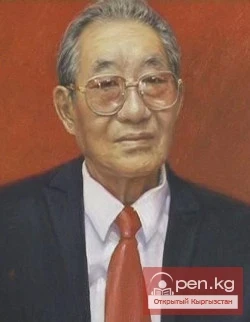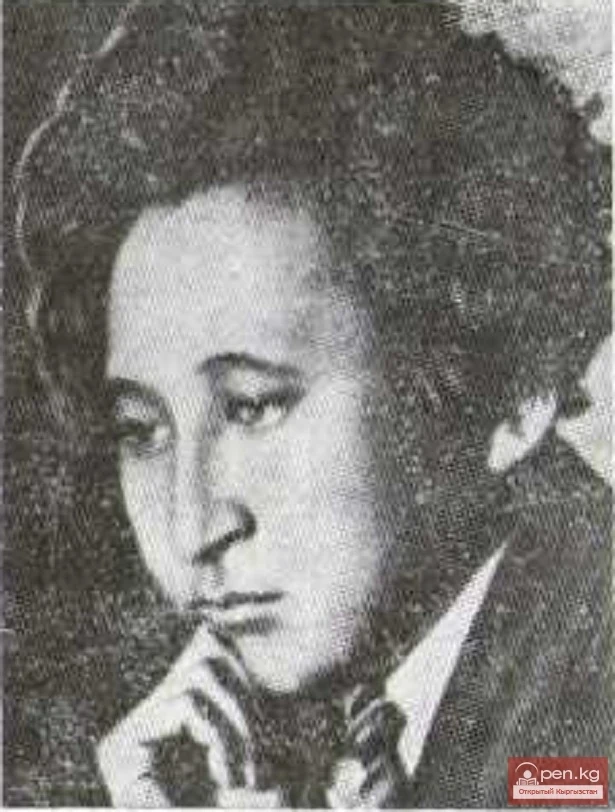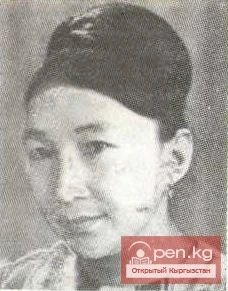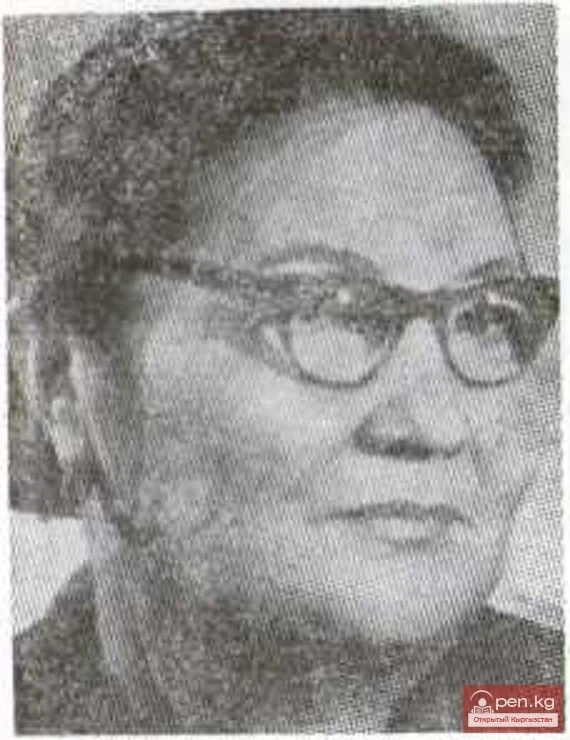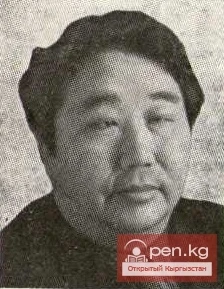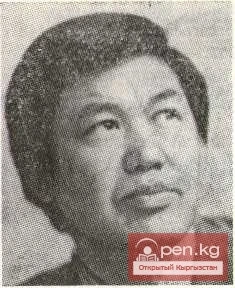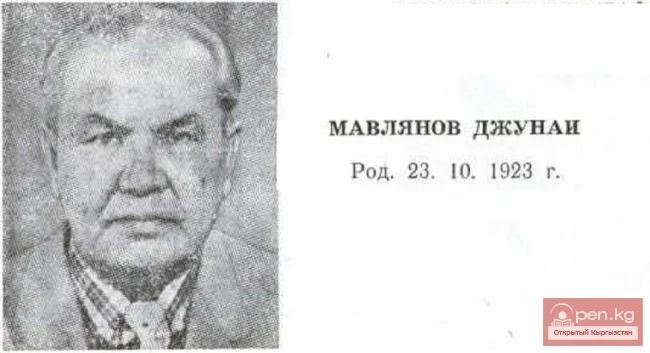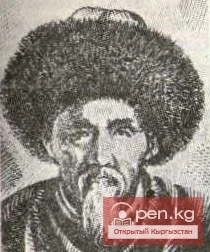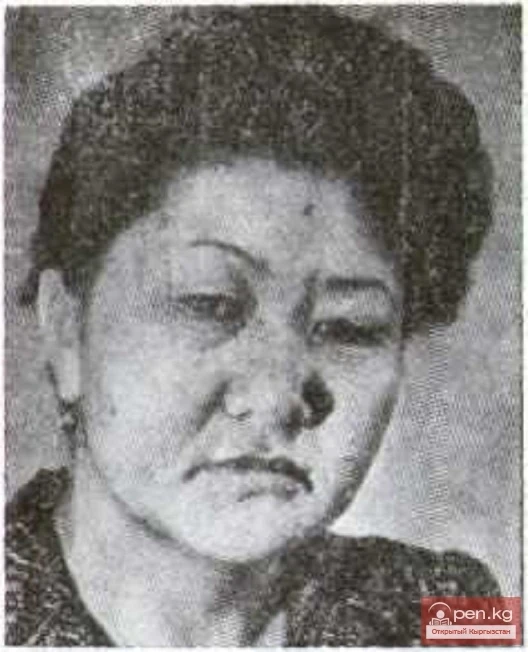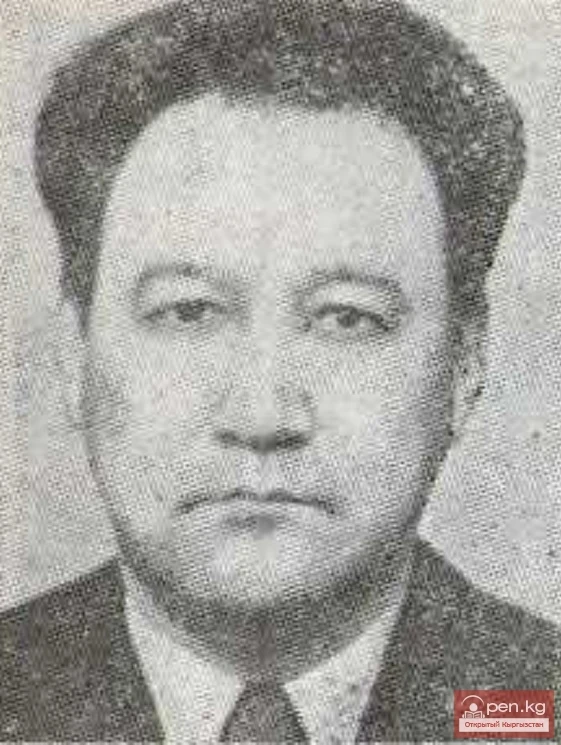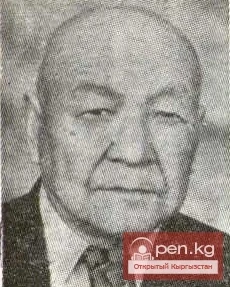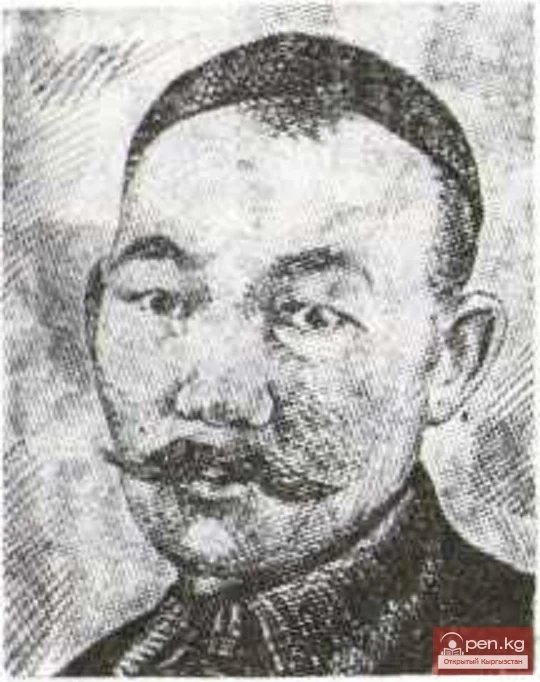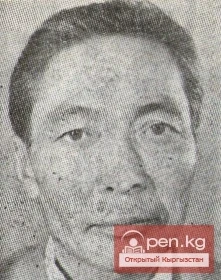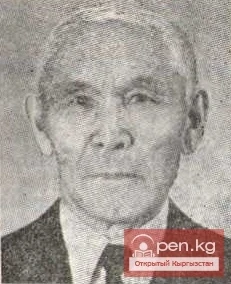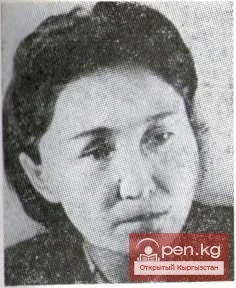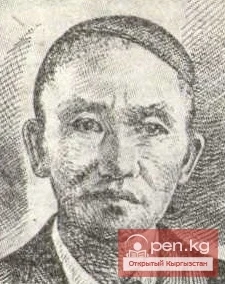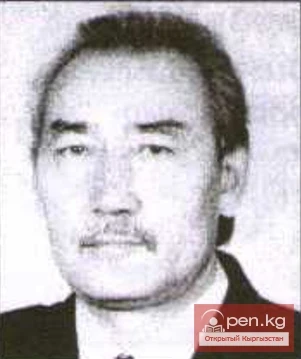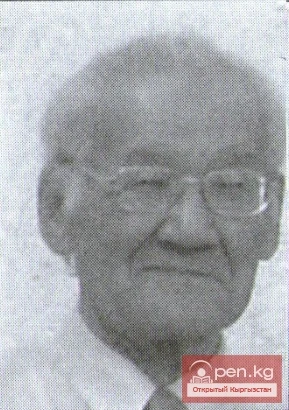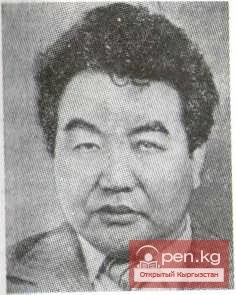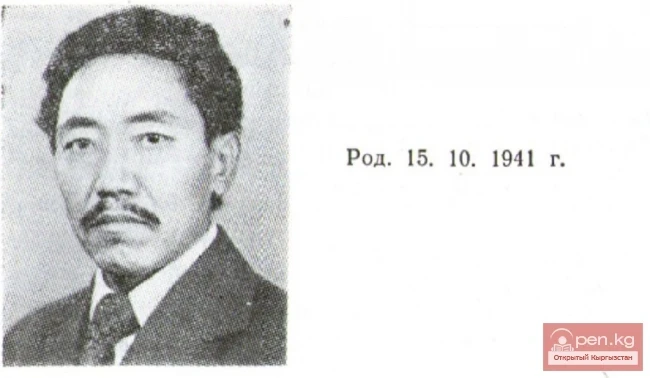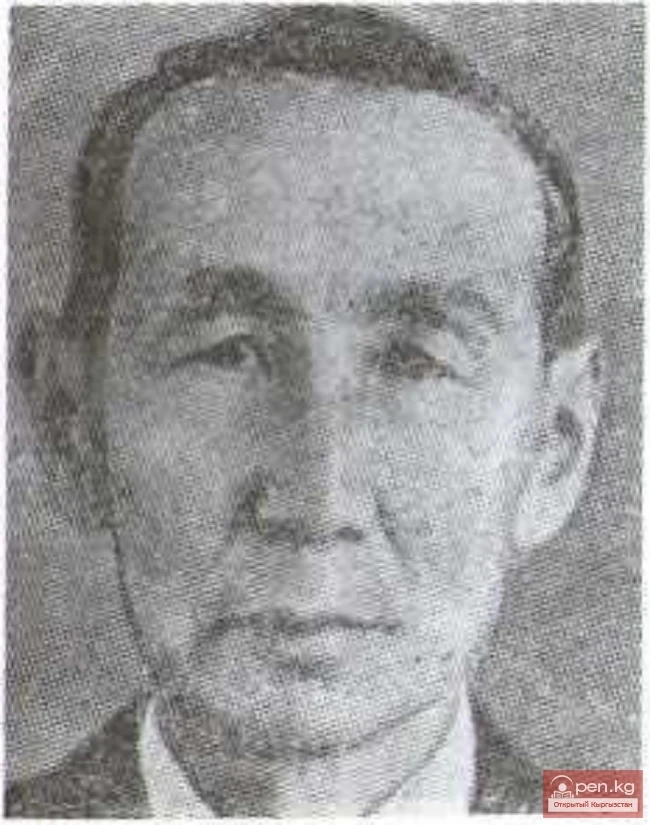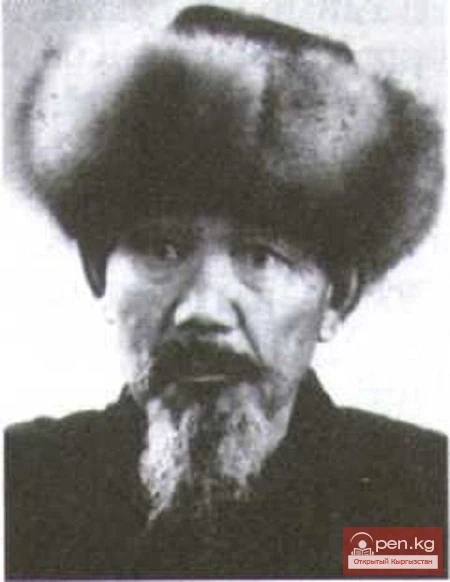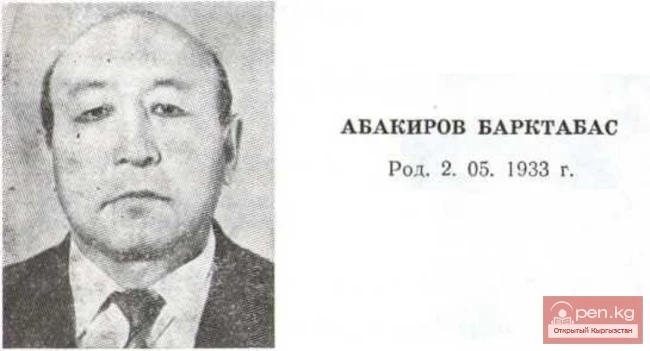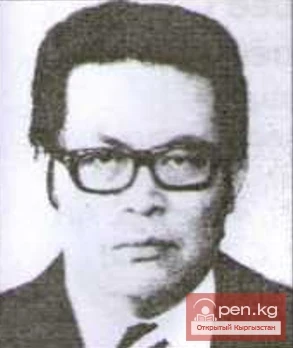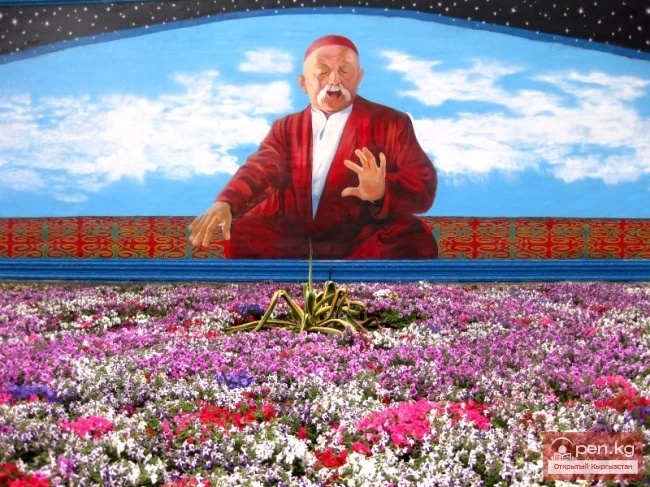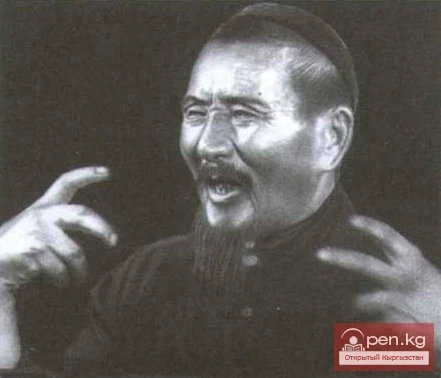
Moldobasan Musulmankulov (1883—1961), a talented storyteller, akyn, komuz player, and People's Artist of Kyrgyzstan (1935), was born in the village of Terek, now in the Ak-Talinsky district of Naryn region. The first influence on Musulmankulov's storytelling creativity was his brother Kaligul. With his help, Musulmankulov began to master playing the komuz and a large repertoire of folk songs.
From 1936 to 1952, Musulmankulov worked at the Kyrgyz Philharmonic as a storyteller-manaschi and as a komuz player in the orchestra of Kyrgyz folk instruments named after K. Orozov. He participated in the first Decade of Kyrgyz Art in Moscow (1939).
M. Musulmankulov was awarded the Order of the Red Banner of Labor, the "Badge of Honor," and various medals.
The first and second parts of the epic trilogy were recorded from the mouth of Moldobasan Musulmankulov, and he also recorded the small epics "Kurmanbek," "Janush-Baish," "Jatsyl Myrza," "Kedeykan," "Kulbara and Asan," as well as prose tales "Hero Osmon," "The Clever Girl and the Foolish Khan." Moldobasan became famous as a versatile storyteller, although he did not enter the history of art as an innovative manaschi.
In terms of performance style, Musulmankulov leaned towards a more restrained, strict, academic manner of improvisation and belonged to the epic school associated with the creative activity of a group of storytellers from the Tian Shan region of the republic.
